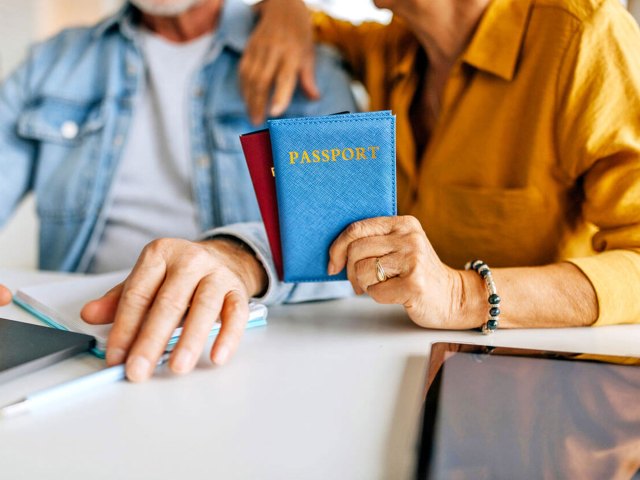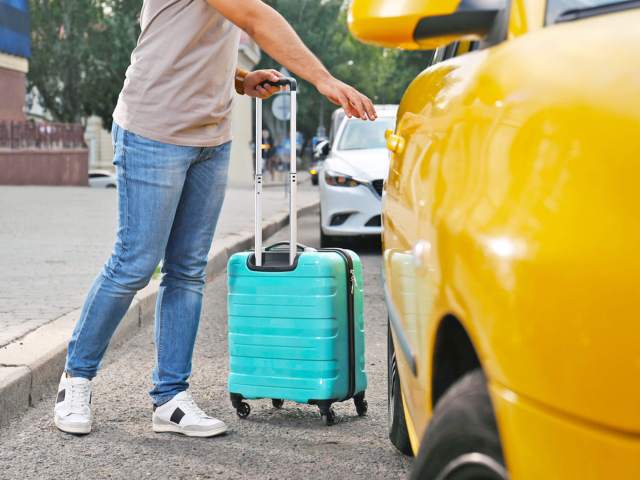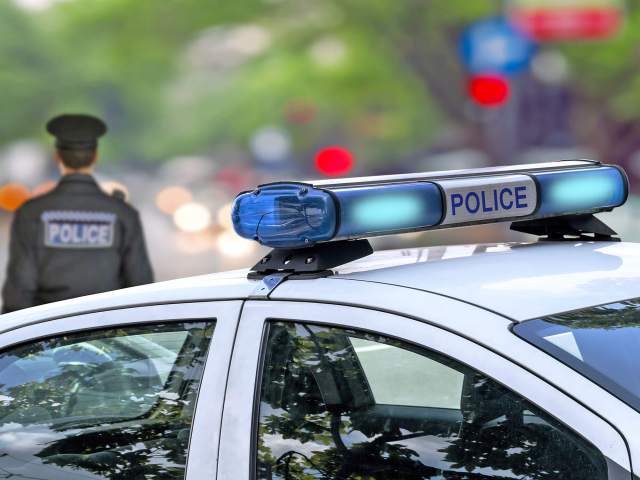According to data from the FTC, scammers conned unsuspecting Americans out of a mind-blowing $10 billion in 2023. One in four found themselves a victim, incurring a median loss of $500. Travel-related scams were a relatively small percentage of these incidents, but even so, they still generated more than 55,000 reports — hardly insignificant. And as much of our trip planning and bookings now take place online, potential scams have become more sophisticated. Rest assured: The vast majority of vacations go off without a hitch, but here are six common travel scams to look out for before, during, and after your trip.
Make Sure It Really Is Your Hotel Getting in Touch

Many travelers rely on online travel agencies (OTAs) and consolidators to find the best deals for accommodations. However, a worrying trend is starting to appear in which hackers are logging into travel booking portals to request money. They do it by infiltrating the systems of the hotels themselves, but because the message arrives via the OTA’s app, travelers have been fooled into thinking it’s legitimate. When they check in, the receptionist has no record of any payment and they’ll have to shell out again.
So, how can you be sure you aren’t dealing with a nefarious third party? When you reserve a room with an OTA such as Booking.com or Expedia, make a note of the hotel’s email address and phone number. Shoot them a message before parting with any money and ask for a secure link if you intend to pay them online. Or, better yet, pick up the phone and call the official number for the hotel and ask to make a payment over the phone.
Be Careful When Using a Third-Party Website for ETAs

An increasing number of countries require travelers to apply for an electronic travel authorization (ETA) prior to travel. They’re similar to the ESTA required by the U.S. to determine eligibility for entry under the Visa Waiver Program. As such programs are overseen by official government agencies, so too are the websites through which travelers apply.
But unscrupulous businesses have seen an opportunity to dupe applicants by offering to procure the ETA on their behalf, charging an additional fee in the process. One provider, for instance, offers a Canadian ETA service for $79. However, if you apply directly with the Canadian government, it costs just $7 CAD. Though U.S. travelers aren’t required to obtain a Canadian ETA, other areas such as the EU are planning such requirements in the near future, and similar websites are likely to pop up. So, be sure to do your due diligence and apply with the government agency directly.
Avoid Being Taken for a Ride at the Airport

There are many reasons for travelers to be wary at the airport. One potential scam awaits right outside the arrivals hall. If you’re jet-lagged after a long journey, it can be easy to fall victim to unlicensed taxi drivers. Hop in, and you could be taking a circuitous route to your accommodation and be charged well over the going rate. Or worse, you could be charged an inflated price displayed on a meter that’s been tampered with.
Trust your gut — if something feels a little off, go back inside the terminal building and find the information kiosk so airport employees can point you in the right direction. Research your destination before leaving home to see if there’s an official taxi area at the airport. Alternatively, arrange for transportation with the hotel directly, book a scheduled shuttle transfer, or consider public transportation if it’s available.
Yes, Diversion Scams Still Exist

You’ve probably read about diversion scams before. They follow a tried and tested pattern, starting with a tap on the shoulder to point out that you’ve dropped something or perhaps an offer of a handkerchief to deal with an accidental spillage on your jacket. As you take a look and thank the kind stranger for their help, an accomplice picks your pocket or snatches your bag. By the time you realize your mistake, they’ve disappeared, leaving you to work out what’s missing.
Sadly, such thefts take place often in some destinations. It’s always common sense to keep your wits about you in busy places or during any interactions initiated by someone else, such as if you’re asked for directions. Avoid using your cell phone on the go where possible, wear cross-body bags or money belts, and keep valuables behind zipped pockets or in a hotel safe.
Be on the Lookout for Fake Police Officers

Most travelers would instinctively trust a police officer when overseas and comply with their instructions. Unfortunately, impersonators bank on you doing just that. One relatively common sting is to demand your purse in order to search for counterfeit money. When they return it, some of your cash will be missing, though you probably won’t be able to prove anything — it’s your word against theirs.
While you might be able to spot a fake on home turf, faced with unfamiliar uniforms you probably wouldn’t feel as confident in doing so abroad. Asking to see ID might help, but that could also be counterfeit. Instead, request that the so-called officer accompany you to the nearest police station so that the check can be carried out on the premises.
Check Social Media Handles Carefully

When flights are canceled or baggage fails to appear on the carousel, it can be tempting to vent on social media. After all, you’re doing your fellow travelers a service by sharing your experience, right?
But if you get a response purporting to be from the airline’s customer service team, take a close look at the account from which it originates and also whether it was set up recently. Scammers trawl for keywords in the hope of finding their next victim. You may be asked to send a direct message with your flight details or hand over personal information such as bank account or credit card details. Fraudsters have tricked some unwitting passengers into paying a rebooking fee or fare difference, thinking it’s for a replacement flight, when in reality it’s just another travel scam to be on the lookout for.
Note: All featured products and deals are selected independently and objectively by the author. Daily Passport may receive a share of sales via affiliate links in content.
Featured image credit: Credit: Oat_Phawat/ iStock
More from our network
Daily Passport is part of Inbox Studio, an email-first media company. *Indicates a third-party property.
















